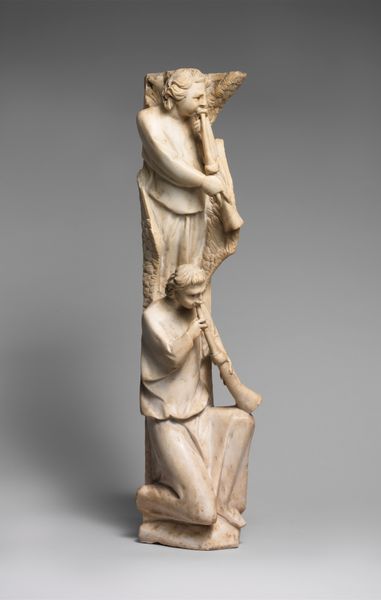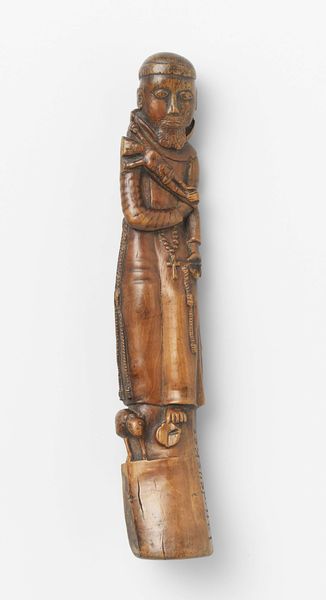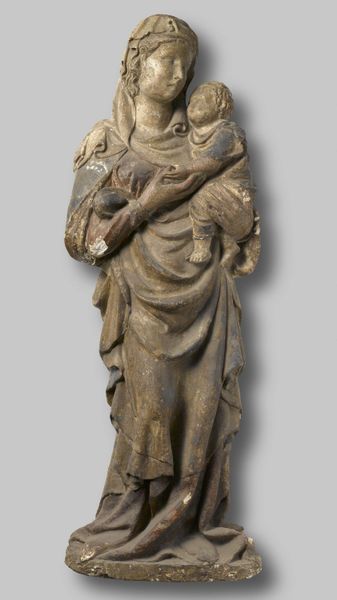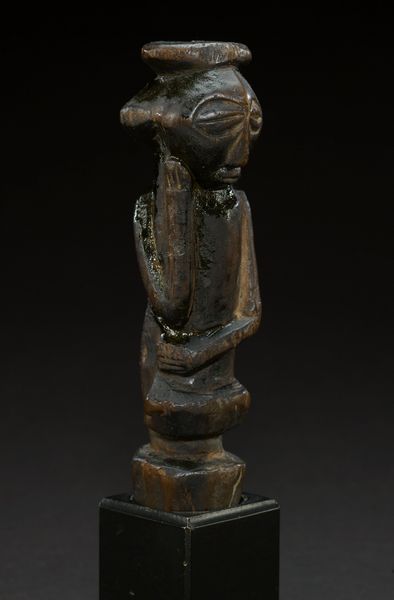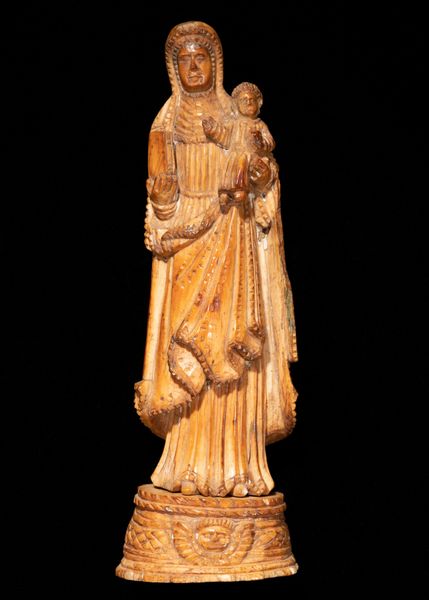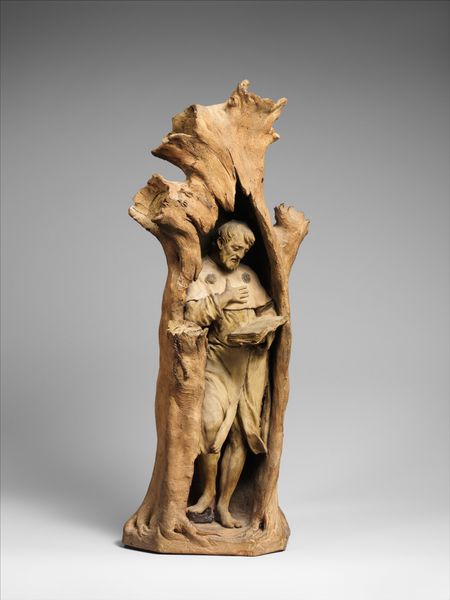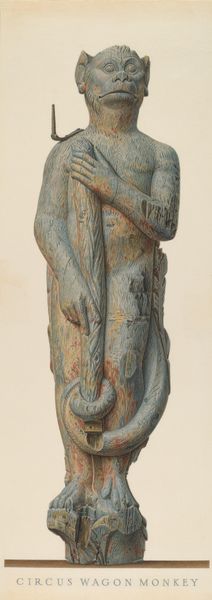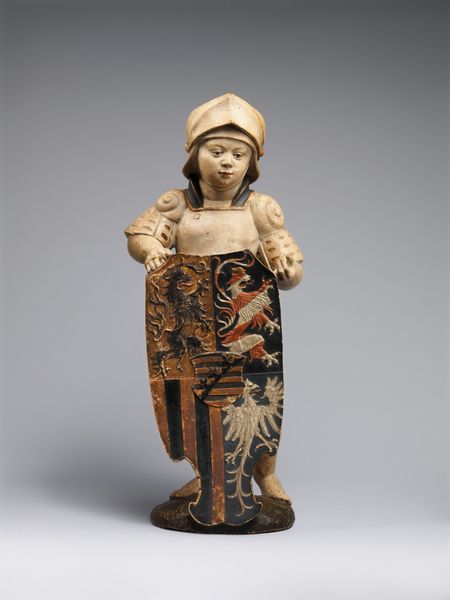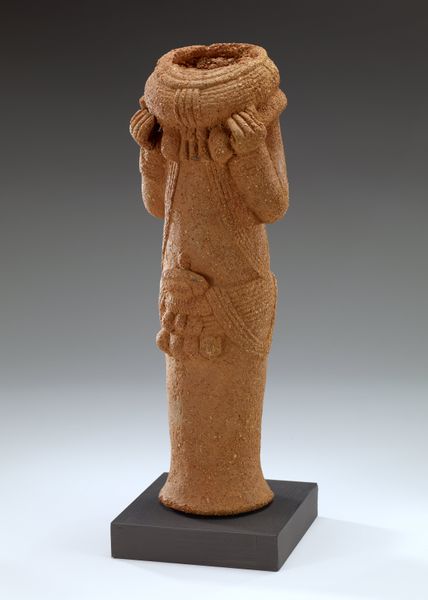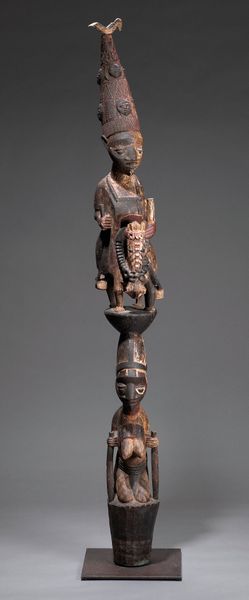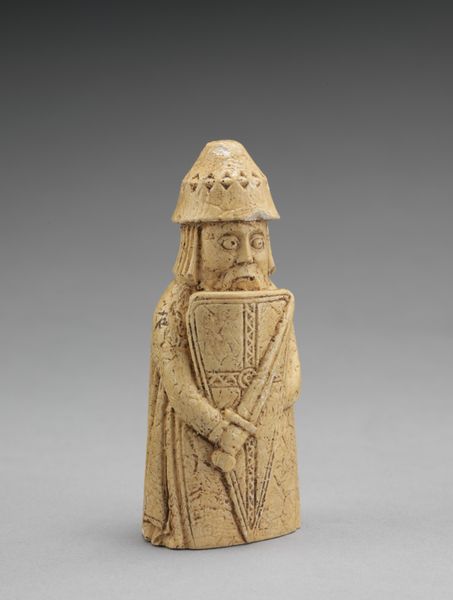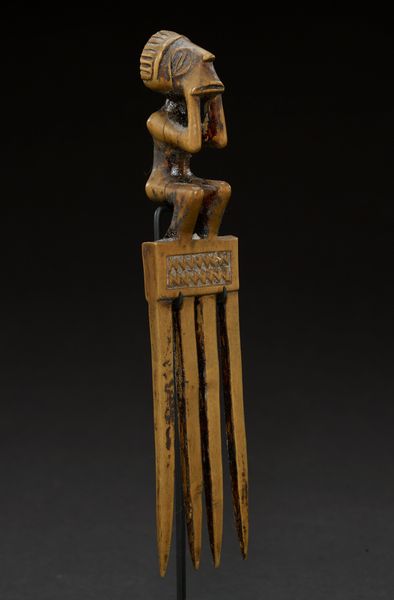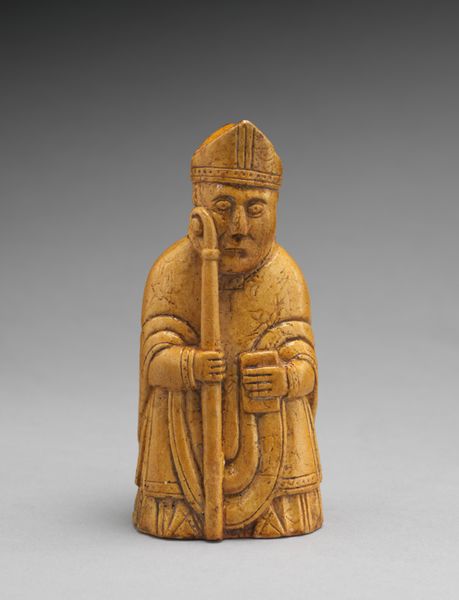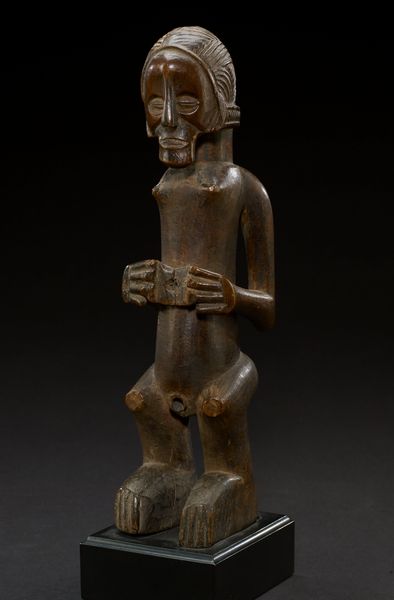
carving, sculpture, ivory
#
african-art
#
carving
#
sculpture
#
figuration
#
sculpture
#
ivory
Dimensions: 10 5/16 x 3 5/16 x 2 13/16 in. (26.19 x 8.41 x 7.14 cm)
Copyright: Public Domain
Editor: So, this sculpture, “Toni Malau (St. Anthony),” dates from the late 18th to early 19th century and originates from the Kongo. It's ivory carving. It's interesting how this European religious figure is rendered in this medium and style. What's your take on it? Curator: Looking at it from a materialist perspective, the carving itself is central. Think about the labor involved in extracting and shaping ivory at this time. How does the exotic nature of the material—ivory being a luxury good connected to colonial trade—influence the sculpture's meaning? Is it possible the means of the work's creation affected the figure? Editor: That's interesting; I hadn't considered that angle. The choice of ivory now seems quite loaded, given the history of colonialism and trade. It makes me wonder about the original owner of the object, if it was personal or used to show one's wealth? Curator: Exactly! Considering it wasn't bronze, one might ask whether local belief systems adapted to the colonial context shaped this particular rendition. Perhaps St. Anthony became a means of indigenizing colonial presence. Could this be an indication of who has labor over the carving of this sculpture? Editor: It changes everything when we think about who made the sculpture and the complex negotiations occurring during its creation. I suppose focusing solely on the religious aspects would leave so much unexplored. Curator: Indeed! We risk overlooking the complicated story of its materiality and how its creation participated in broader social, economic, and cultural exchanges. Considering the processes transforms the meaning.
Comments
minneapolisinstituteofart about 2 years ago
⋮
This centuries-old African representation of Saint Anthony of Padua is a good example of syncretism. Syncretism is the combination of different, seemingly contradictory belief systems. Known as Toni Malau among the Kongo people, “Anthony of Prosperity” is shown here wearing a European monk’s clothing, belt, and sandals. Yet over his shoulders he wears a netted cape, a raffia garment reserved for Kongo nobility, and parts of the Child’s arms and Toni Malau’s left hand have gradually been scraped off as believers took bits of ivory for healing or protection. Drawing its form and power from both traditions, Toni Malau embodies the rich exchange between Kongo and Christian religious thought and imagery, which developed before forced conversion under colonialism.
Join the conversation
Join millions of artists and users on Artera today and experience the ultimate creative platform.
